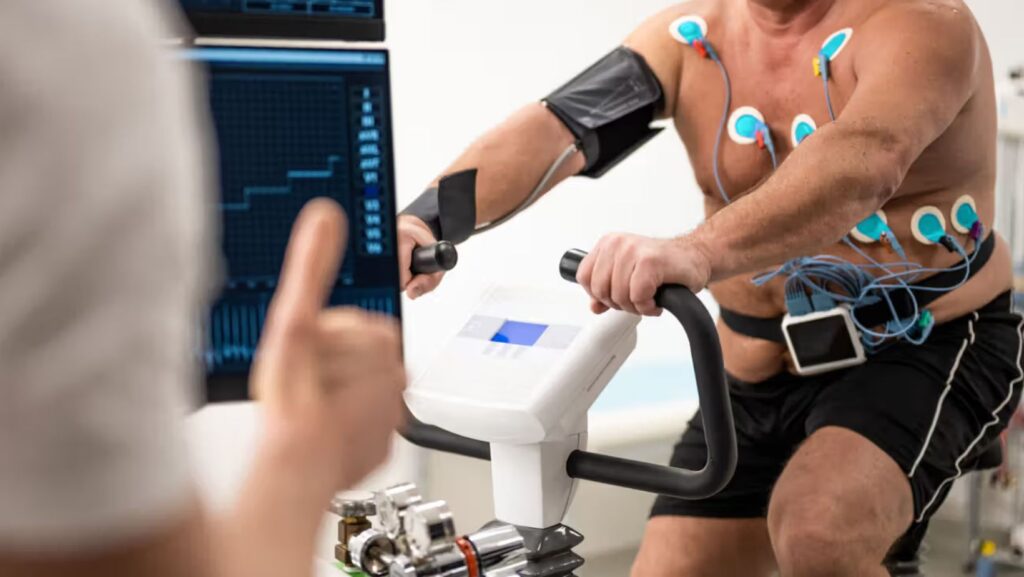According to a new study, a groundbreaking new Blood Test could revolutionize how doctors prevent heart attacks and strokes by identifying patients who would benefit most from preventive blood-thinning medications.
The TRIPLE Score test measures specific proteins on blood platelets and a patient’s age to help doctors determine whether they should be prescribed blood-thinning drugs like aspirin and clopidogrel. These medications can be life-saving but also carry a risk of severe bleeding, making it difficult for doctors to prescribe them preventively without a reliable way to predict who would benefit.
Currently, these drugs are only given to patients who have already suffered a heart attack or stroke. However, researchers hope the TRIPLE Score could change that, allowing at-risk patients to receive preventive treatment before an emergency occurs.
“Around 100,000 heart attacks occur each year in the UK, despite significant progress in prevention,” said Dr. Alexander Bye, lead author of the research at the University of Reading. “We must think of smarter ways to use drugs like aspirin if we are going to bring this number down. Our new test will help doctors ensure that patients receive the best treatment and keep their quality of life.”
How the TRIPLE Score Works

The test, detailed in Circulation Research, requires only a tiny blood sample and analyzes platelet activity to determine a patient’s likelihood of developing dangerous blood clots. Researchers found that the TRIPLE Score successfully identified patients whose blood was more prone to clotting in laboratory tests.
Notably, the results also aligned with existing risk scores used by doctors to predict a patient’s likelihood of having a heart attack in the next 10 years, confirming its accuracy as a predictive tool.
The research team is now working to simplify the test further, with plans to develop a finger-prick version that could make it as easy to use as a blood glucose test.
A Potential Game-Changer for Heart Disease Prevention

The TRIPLE Score could be a breakthrough for cardiology, helping doctors prescribe preventive medications safely and effectively.
“This test could transform heart attack prevention in the NHS,” said Professor Neil Ruparelia, a cardiologist at Royal Berkshire Hospital and co-author of the study. “Right now, we’re caught in a difficult position—we have medications that can prevent heart attacks, but we can’t safely give them to everyone who might benefit because of bleeding risks. With this new test, we can finally identify which patients would benefit most from preventive treatment.” Blood Test
Beyond improving patient outcomes, the test could also have financial benefits. By reducing emergency hospitalizations for heart attacks and strokes, it could save the NHS millions in healthcare costs.
Next Steps: Bringing the Blood Test to Patients

The TRIPLE Score is still in development and is not yet widely available. The next step is to implement patient studies to verify its effectiveness in real-world clinical settings. Blood Test
To accelerate its availability, researchers have launched HaemAnalytica, a University of Reading spin-out company focused on making platelet function tests widely accessible and personalizing approaches to thrombosis prevention and treatment. Blood Test
If the test proves successful in larger trials, it could become a routine screening tool for identifying high-risk patients and significantly improving heart attack prevention strategies worldwide.
Reference: Alexander P. Bye, Neline Kriek, Carly Kempster, Joanne L. Dunster, Joanne L. Mitchell, Tanya Sage, Suzannah Rawlings, Maria V. Diaz Alonso, Valentina Shpakova, Abigail Whyte, Leanne Dymott, Sharon Mark, Mark Brunton, Joana Batista, Harriet McKinney, Patrick Thomas, Kate Downes, Amanda J. Unsworth, Neil Ruparelia, Charlie McKenna, Chris I. Jones, Jonathan M. Gibbins. TRIPLE Score: GPVI and CD36 Expression Predict a Prothrombotic Platelet Function Phenotype. Circulation Research, 2025.

